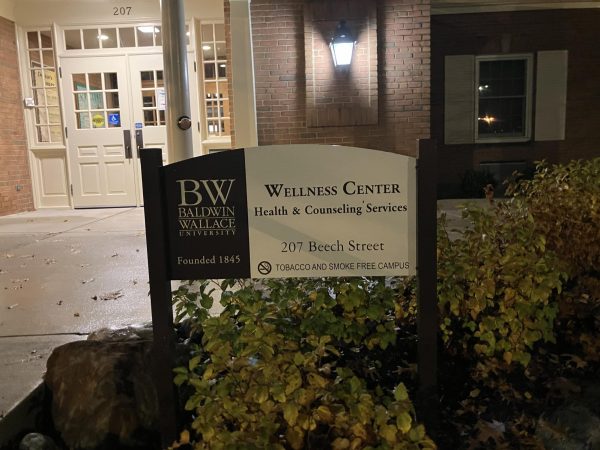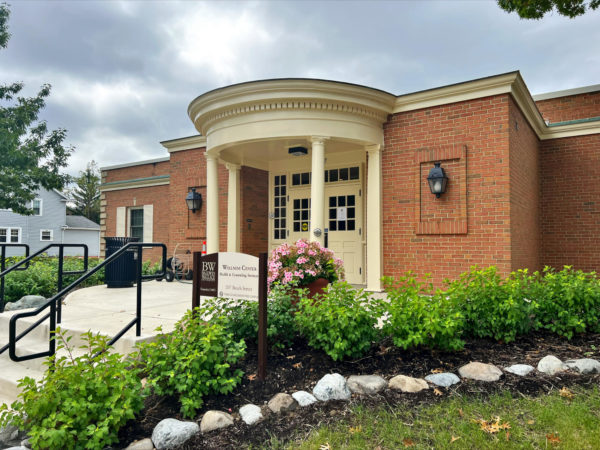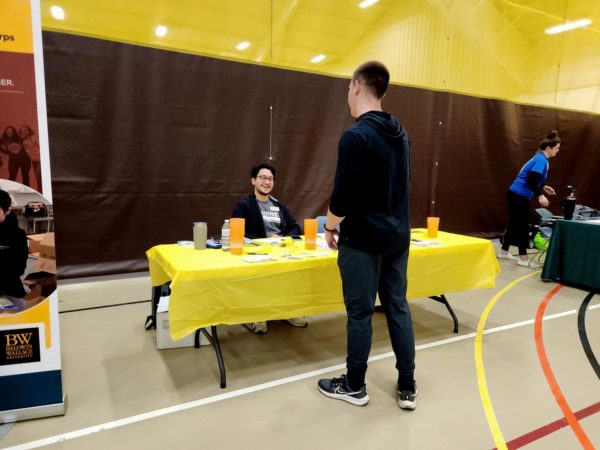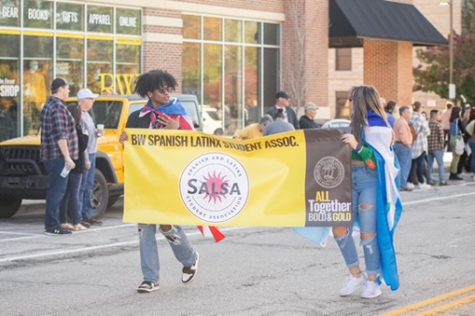A Day in the Life: Vegetarian is what you define it
Mary Masterson and Emma Davis live their lives as vegetarians. Both are sophomores in college who live on campus. Masterson goes to Baldwin Wallace and Davis goes to Cleveland State University. And each one has a different story to tell about being vegetarian.
So what is a vegetarian? And how is it different from being vegan? Merriam-Webster defines “vegetarian” as “a person who does not eat meat : someone whose diet consists wholly of vegetables, fruits, grains, nuts, and sometimes eggs or dairy products.”
It defines “vegan” as “a strict vegetarian who consumes no food (such as meat, eggs, or dairy products) that comes from animals, also : one who abstains from using animal products (such as leather).”
Masterson defines being a vegetarian by not eating “any fish or meat, but I still eat dairy products and eggs. I also choose not to use animal products like leather. Basically, I try to live as peacefully as I can, and for me that includes not causing any harm to animals.”
Davis said they are “a vegetarian, as well as a person who tries not to use anything that isn’t cruelty free in regards to beauty products.”
So even to vegetarians, the line between veganism and vegetarianism is blurred.
Masterson has been a vegetarian for 8 years, since she was 12. While Davis “went vegetarian about six or seven years ago.”
When asked how this affects her life Masterson said, “I think being vegetarian really guides a lot of my moral and ethical decisions and has really changed my viewpoint about life and how I view animals and living things. For where it affects me, I would say that whenever I go somewhere to eat, I have to factor in whether or not I can eat there or if they will be able to make accommodations to the meal so I will be able to eat it.”
Davis said, “it doesn’t affect me particularly on a day to day basis, other than having to be slightly picky whenever there is a group dinner of some kind. It also crops up when people wish to stop for fast food in the car, because salads are not really portable foods.”
Masterson added that “when I go out to eat with friends or go to a family party I am not always certain that I will have something to eat, and it is frustrating sometimes when my extended family doesn’t have options for me to eat anything. It is also difficult because many foods can be easily made vegetarian, but people will still make them with chicken/beef broth or put meat in a sauce dish.”
Davis concurs with Masterson, but only finds it difficult “because I don’t wish to be an inconvenience.”
The reasons behind why Davis and Masterson went vegetarian were very similar.
Davis “chose this because of my deep love for animals, and prior to going fully vegetarian I didn’t eat pork for about five years. I watched and read Charlotte’s Web as a kid and couldn’t fathom eating Wilbur, so I dropped the pork.”
Masterson “chose to be vegetarian mainly because of the ethics and animal rights component of the lifestyle. I have always cared a lot about animals, and I eventually realized that I no longer wanted to cause harm to them by eating meat because I believe animals are complex and emotional and that they deserve to have safe and happy lives. Additionally, I chose to become vegetarian because of the environmental damage that the meat industry has done, and I believe that being vegetarian is much more sustainable than the corporate meat industry, which has become dominant over many local farmers who do use sustainable practices.”
Davis and Masterson then shared some stories about being vegetarian.
Davis said, “a horror story of mine is when I stopped eating pork for several years and I was a pre-teen (I’m not certain the exact age) and my friend’s mother who knew I didn’t eat pork lied to me and tricked me into consuming pork. I was devastated, and promptly felt sick.”
Masterson said, “one story that stands out to me is when I was first telling my mom that I wanted to be vegetarian. I remember explaining to her that I was afraid that my dad would be upset that I was going to stop eating meat because when I was at his house he would always cook meat and I remember her saying that he wouldn’t be upset that I wanted to take care of animals and couldn’t understand why I was worried. After a few minutes of confusion, I eventually figured out that she thought I said I wanted to be a veterinarian instead of vegetarian. After everything was cleared up, it ended up working out fine and my dad actually wasn’t upset about it after all.”
Surprisingly being a vegetarian doesn’t affect Masterson’s and Davis’s daily routine all that much.
For Masterson, “being vegetarian really only affects what I do at meal times because I have to make sure I am getting enough protein and other nutrients, but it’s not that different than when I ate meat in regards to my daily routine.”
Davis said that the only time it really affected them was “when I was in high school my mom would text me when dinner was almost ready and then I would make my own vegetarian dish, if whatever she made couldn’t have the meat removed easily.”
As to how she is coping at BW, Masterson said, “it can be difficult sometimes because my options in the dining hall are a lot more limited. Usually there is always a vegetarian option but a lot of times it doesn’t have enough protein in it, so I will find myself having to eat other snacks. I really like when tofu is offered as a meal choice because it is more filling and has enough nutrients. In terms of finances, I think for some it may be difficult, especially if you have to buy extra snacks to get protein, and usually those tend to be healthier so they are more expensive, but I have found that it is possible to get cheap foods that are nutritious and filling, but it requires some research and budgeting.”
Davis said, in regards to dining at CSU, that “being vegetarian as a college student isn’t terribly hard because the dining hall always has salad, and often has pasta or tacos as well.”
Masterson said, “I don’t think it’s that difficult to be vegetarian, I think at the beginning it requires some patience and discipline to keep up with a plant-based diet and not eat meat, but once you get the hang of it, it’s not that much difficult than any other dietary choice. You also may need to be able to plan your meals in advance in order to make sure you’re getting enough vitamins/nutrients and budgeting your shopping plan, but I think that can be said for any diet.”
Davis added that “you have to make sure to still consume some protein.”
Masterson said “the benefits [of being vegetarian] are that it makes me feel good that my diet and lifestyle is reflective of the morals I want to live by, and sometimes it’s a lot healthier than what I ate before being vegetarian. Becoming vegetarian has been one of the most meaningful choices I’ve made in my life and I’m glad I decided to do it.”
The Exponent is looking for financial contributions to support our staff and our newsroom in producing high-quality, well-reported and accurate journalism. Thank you for taking the time to consider supporting our student journalists.














































